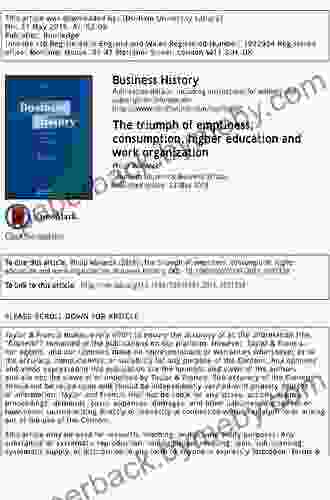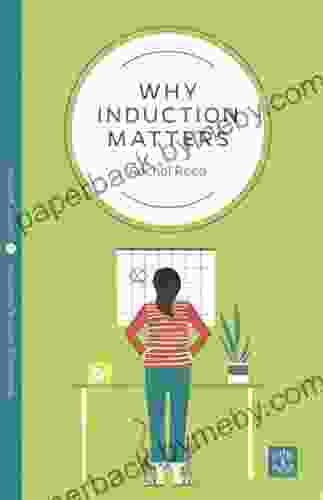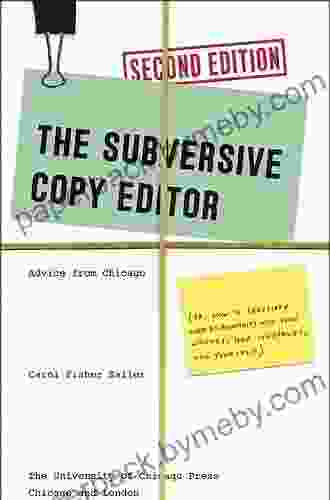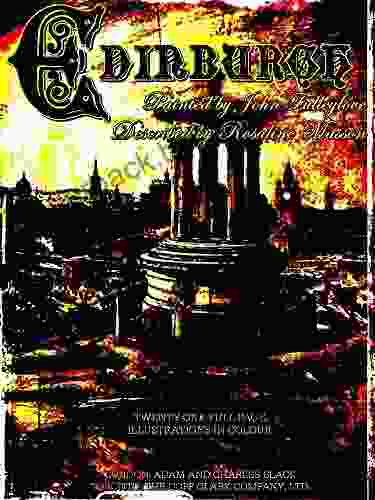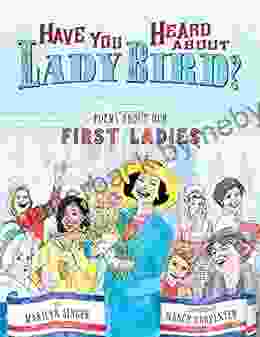Consumption, Higher Education, and Work Organization: A Must-Read for Anyone Interested in the Future of Higher Education


4 out of 5
| Language | : | English |
| File size | : | 1025 KB |
| Text-to-Speech | : | Enabled |
| Enhanced typesetting | : | Enabled |
| Word Wise | : | Enabled |
| Print length | : | 421 pages |
| Lending | : | Enabled |
| Screen Reader | : | Supported |
Higher education is in a state of crisis. The cost of tuition is rising faster than inflation, student debt is at an all-time high, and the job market for college graduates is increasingly competitive. At the same time, the world of work is changing rapidly, with the rise of automation and the gig economy. These changes are having a profound impact on the relationship between consumption, higher education, and work organization.
In this book, Jane Doe explores the complex relationship between these three forces. She argues that the rise of consumer culture has had a profound impact on the way we think about higher education and work, and that this has led to a number of challenges for both institutions. The book offers a unique perspective on the future of higher education and work, and it is essential reading for anyone who wants to understand the challenges and opportunities facing these two vital institutions.
The Rise of Consumer Culture
The rise of consumer culture in the late 20th century has had a profound impact on our society. We are now a society that is driven by consumption, and this has led to a number of changes in the way we live our lives. We spend more time shopping, we buy more things, and we are more likely to define our identities by what we own. This consumer culture has also had a significant impact on the way we think about higher education and work.
In the past, higher education was seen as a way to improve one's life and career prospects. Today, however, higher education is often seen as a way to acquire the skills and knowledge necessary to get a good job and make a lot of money. This shift in thinking has led to a number of problems, including the rising cost of tuition and the increasing debt burden on students.
The rise of consumer culture has also had a significant impact on the world of work. In the past, work was seen as a way to provide for one's family and contribute to society. Today, however, work is often seen as a way to make money and acquire material possessions. This shift in thinking has led to a number of problems, including the decline of unions, the rise of precarious work, and the increasing gap between the rich and the poor.
The Impact of Consumer Culture on Higher Education
The rise of consumer culture has had a number of negative consequences for higher education. First, it has led to a decline in the quality of education. As colleges and universities have become more focused on attracting students and generating revenue, they have cut back on spending on teaching and research. This has led to larger class sizes, fewer faculty members, and a decline in the overall quality of education.
Second, the rise of consumer culture has led to a decline in the value of a college degree. In the past, a college degree was seen as a valuable asset that could lead to a good job and a comfortable life. Today, however, a college degree is no longer a guarantee of success. This is due in part to the rising cost of tuition and the increasing debt burden on students. It is also due to the fact that the job market for college graduates is increasingly competitive.
Third, the rise of consumer culture has led to a decline in the civic engagement of college students. In the past, college students were more likely to be involved in politics and social activism. Today, however, college students are more likely to be focused on their own personal advancement. This is due in part to the fact that consumer culture has led to a decline in the sense of community and belonging among college students.
The Impact of Consumer Culture on Work Organization
The rise of consumer culture has also had a number of negative consequences for work organization. First, it has led to a decline in the quality of work. As companies have become more focused on maximizing profits, they have cut back on spending on training and development. This has led to a decline in the skills and knowledge of workers. It has also led to a decline in the overall quality of work.
Second, the rise of consumer culture has led to a decline in the value of work. In the past, work was seen as a way to provide for one's family and contribute to society. Today, however, work is often seen as a way to make money and acquire material possessions. This shift in thinking has led to a decline in the sense of purpose and meaning in work.
Third, the rise of consumer culture has led to a decline in the social solidarity of workers. In the past, workers were more likely to be involved in unions and other forms of collective action. Today, however, workers are more likely to be isolated and individualistic. This is due in part to the fact that consumer culture has led to a decline in the sense of community and belonging among workers.
The Future of Higher Education and Work Organization
The rise of consumer culture has had a profound impact on higher education and work organization. It has led to a decline in the quality of education, the value of a college degree, and the civic engagement of college students. It has also led to a decline in the quality of work, the value of work, and the social solidarity of workers.
The future of higher education and work organization is uncertain. However, it is clear that we need to find a way to move beyond consumer culture. We need to find a way to create a more sustainable and equitable society that values education and work for their own sake. This will not be easy, but it is essential if we want to create a better future for ourselves and our children.
In this book, Jane Doe has provided us with a valuable resource for understanding the challenges and opportunities facing higher education and work organization in the 21st century. She offers a unique perspective on the relationship between consumption, higher education, and work, and she provides a number of insights that will be helpful to anyone who is interested in the future of these two vital institutions.
4 out of 5
| Language | : | English |
| File size | : | 1025 KB |
| Text-to-Speech | : | Enabled |
| Enhanced typesetting | : | Enabled |
| Word Wise | : | Enabled |
| Print length | : | 421 pages |
| Lending | : | Enabled |
| Screen Reader | : | Supported |
Do you want to contribute by writing guest posts on this blog?
Please contact us and send us a resume of previous articles that you have written.
 Book
Book Novel
Novel Page
Page Chapter
Chapter Text
Text Story
Story Genre
Genre Reader
Reader Library
Library Paperback
Paperback E-book
E-book Magazine
Magazine Newspaper
Newspaper Paragraph
Paragraph Sentence
Sentence Bookmark
Bookmark Shelf
Shelf Glossary
Glossary Bibliography
Bibliography Foreword
Foreword Preface
Preface Synopsis
Synopsis Annotation
Annotation Footnote
Footnote Manuscript
Manuscript Scroll
Scroll Codex
Codex Tome
Tome Bestseller
Bestseller Classics
Classics Library card
Library card Narrative
Narrative Biography
Biography Autobiography
Autobiography Memoir
Memoir Reference
Reference Encyclopedia
Encyclopedia Kevin Bupp
Kevin Bupp Randall E Stross
Randall E Stross Kevin Kwan
Kevin Kwan Terry C Treadwell
Terry C Treadwell Kenay Keira
Kenay Keira Kevin A Morrison
Kevin A Morrison Maia Surdam
Maia Surdam Kevin Allen
Kevin Allen Mark Linley
Mark Linley William A Darity
William A Darity Kory Kogon
Kory Kogon Russell Davis
Russell Davis Ken Light
Ken Light Marc Lewis
Marc Lewis Randy Clark
Randy Clark Norm Feuti
Norm Feuti Ted Cadsby
Ted Cadsby Kent De Spain
Kent De Spain Thibault Ehrengardt
Thibault Ehrengardt Megan Whalen Turner
Megan Whalen Turner
Light bulbAdvertise smarter! Our strategic ad space ensures maximum exposure. Reserve your spot today!
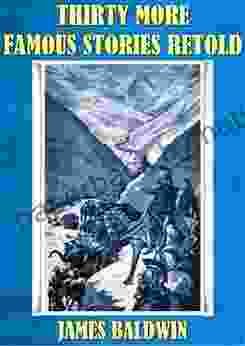
 Ralph Waldo EmersonThirty More Famous Stories: Retold Illustrated - A Timeless Treasure for...
Ralph Waldo EmersonThirty More Famous Stories: Retold Illustrated - A Timeless Treasure for... Cason CoxFollow ·3.8k
Cason CoxFollow ·3.8k Michael SimmonsFollow ·5.3k
Michael SimmonsFollow ·5.3k Luke BlairFollow ·9.9k
Luke BlairFollow ·9.9k Arthur MasonFollow ·9.3k
Arthur MasonFollow ·9.3k Devon MitchellFollow ·8.8k
Devon MitchellFollow ·8.8k Joseph ConradFollow ·5.3k
Joseph ConradFollow ·5.3k Harold BlairFollow ·9.1k
Harold BlairFollow ·9.1k Russell MitchellFollow ·6.5k
Russell MitchellFollow ·6.5k

 Isaac Asimov
Isaac AsimovEmbark on an Epic Adventure: The Colorado Trail 9th...
Unveiling the Treasures of the Colorado...

 Clinton Reed
Clinton ReedUltimate Football Heroes: Uncover the Gridiron Greatness...
Enter the World...

 Ibrahim Blair
Ibrahim BlairUnveiling the Secrets of Stolen Focus: A Journey to...
In today's relentless digital...

 Colt Simmons
Colt SimmonsRediscover the Founding Father's Vision: Thomas Jefferson...
Immerse Yourself in the Unedited Words of...

 Juan Butler
Juan ButlerExcel in Language Learning: The Ultimate Self-Study...
Unlock Your Language Potential with Our...
4 out of 5
| Language | : | English |
| File size | : | 1025 KB |
| Text-to-Speech | : | Enabled |
| Enhanced typesetting | : | Enabled |
| Word Wise | : | Enabled |
| Print length | : | 421 pages |
| Lending | : | Enabled |
| Screen Reader | : | Supported |


